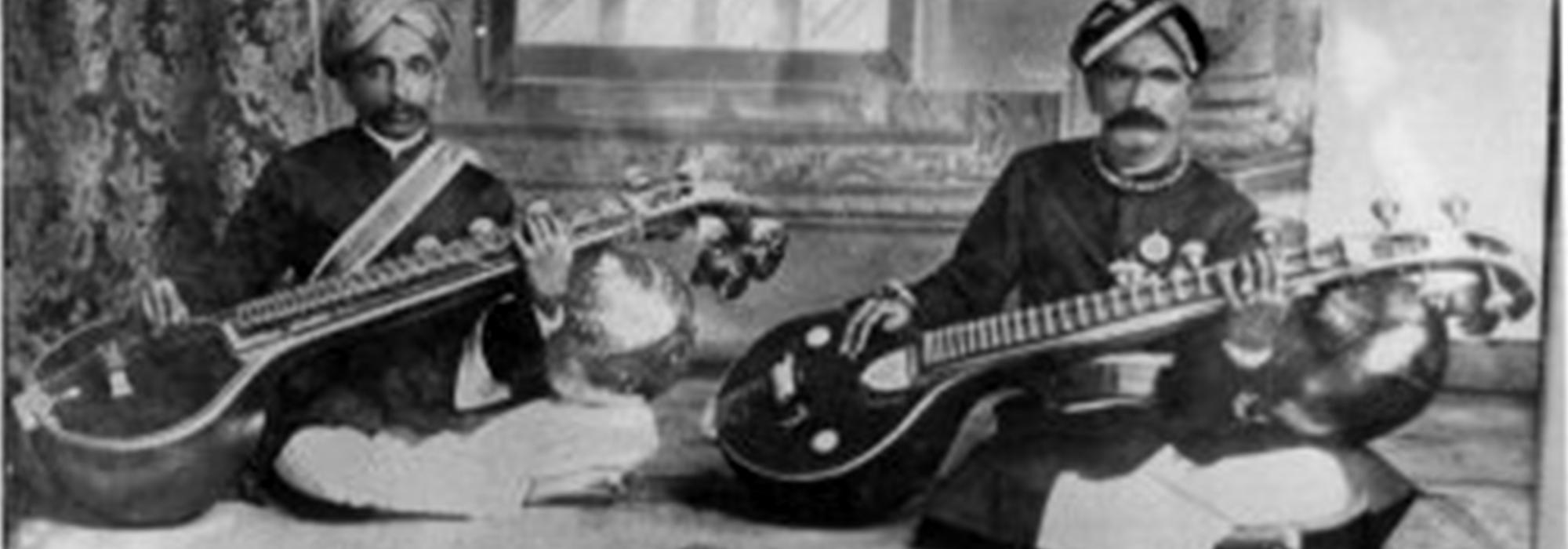अलङ्कारशय्यानिमित्तेन शेषः
पुरारेर्मुरारेर्श्च गात्रानुषङ्गात् ।
त्यजन् सर्पतां भीकरीं सज्जनानां
मनुष्यत्वमानन्ददं संप्रपेदे॥
Mysore Vasudevacharya was not only a great music composer but was also adept in literature. He was aptly called ‘Abhinava Tyāgarāja.’ Music had captured his heart in his childhood. Once, as a young man, he accompanied the the stalwart vīṇā player, Sheshanna to Coimbatore. Sheshanna gave a brilliant concert at the house of a Chettiar. He, with playful humor, introduced Vasudevacharya as a senior musician and asked him to sing a composition. The young and naïve Vasudevacharya, unaware of his trickery, sang for the gathering. His immature singing, however, brought waves of laughter in the gathering. Only then did it dawn upon Vasudevacharya that Sheshanna was trying to pull his leg. Enraged by this, he sang a few Sanskrit verses that he composed extempore.
Śeṣa, after having come in contact with Hari and Hara,
by being their bed and ornament, respectively,
gave up his venom as well as his terrifying nature,
and assumed a pleasing human form and is now happy.
Here, he puns on the names Śeṣa and Śeṣaṇṇa. Vasudevacharya thus paid back Sheshanna for his taunt. Moreover, he points out that he was Vāsudeva while the latter was merely ‘Śeṣaṇṇa;’ Vāsudeva sleeps on Śeṣa. The gathering was impressed by the young Sanskrit genius.
On their return journey from Coimbatore to Mysore by train, Vasudevacharya took up a challenge with Sheshanna to prove his capacity as a musician too. He made Sheshanna teach him the aṭṭa-tāla varṇam ‘Viriboṇi’ in the rāga Bhairavi. The varṇam is popularly deemed to be a difficult challenge to all musicians. He got his instructions from Sheshanna as the train stopped at various stations. He practiced and perfected the varṇam even before the train reached its destination, and presented it before Sheshanna, proving that he was no less capable a musician than an extempore poet.
After this incident, their friendship grew by leaps and bounds and they remained friends for life.
Adapted from Kannada by Arjun Bharadwaj
(The original article is from the anthology Kavitegondu Kathe)















































